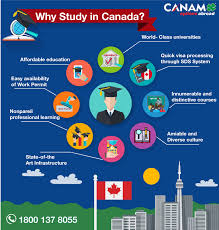| The education system or the education culture in Canada encompasses both publicly-funded and private schools .Education is a provincial responsibility under the Canadian constitution.This means there are significant difference between the education culture of the different provinces. However, education is important to Canadians, and standards across the country are uniformly high.In general, most of the Canadian children attend kindergarten for one or two years at the age of four or five which is on a voluntary basis. All children begin Grade One at about six years of age. The school year normally starts from September in June but in some instances, January intake dates are possible. Secondary schools goes up to Grades 11 or 12, depending on the province. From there, students may attend university and college or Cégep studies. Cégep is a French acronym for College of General and Vocational Education, and is two years of general or three years of technical education between high school and university. The province of Québec has the Cégep system.Some scholars view academics as a form of “soft power” helping to educate and to create positive attitudes. Although there is criticism that educators are merely telling students to think , instead of how to think for themselves. The rest of the world could learn a thing or two from Canada’s top-notch education system and how they treat everyone equally, taking care of all of their citizens and ensuring that everyone gets the education that they deserve. Canada’s impressive success rate didn’t come from nowhere! |





